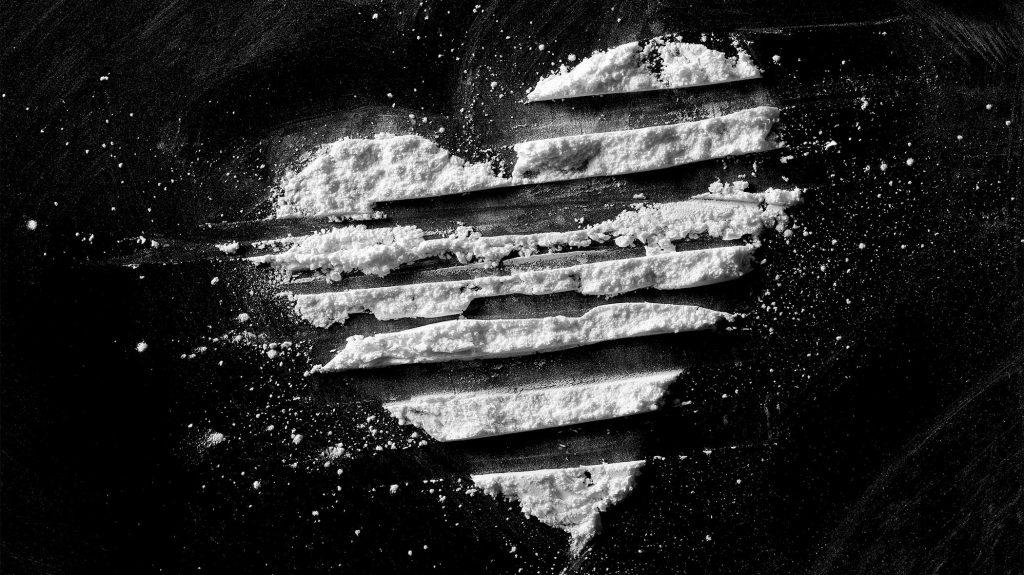Cocaine is a white powder made from the leaves of the coca plant. It’s a powerful stimulant drug that causes a rush of energy and euphoria (intense joy). Some people snort or inject it, while others cook it into small, smokable rocks called crack cocaine.
No matter how you use cocaine, it’s highly addictive. If you’re worried that a loved one may be struggling with cocaine addiction, look for these seven signs.
1. Cocaine Paraphernalia
If your loved one is using cocaine, you may find cocaine paraphernalia in their home, car, or other personal space. The term “cocaine paraphernalia” refers to any items used for making or using cocaine.
Different forms of cocaine abuse are associated with different paraphernalia. As mentioned above, the three most common forms of cocaine abuse are snorting, injecting, and smoking.
Paraphernalia linked to snorting cocaine includes:
- straws
- dollar bills
- paper tubes
- hollow pens
- razorblades
- small mirrors
You may also spot white powder on flat surfaces, such as tables or desks, in your loved one’s home.
Paraphernalia linked to injecting cocaine includes:
- syringes
- needles
- belts
- rubber bands
Paraphernalia linked to smoking cocaine includes:
- metal or glass pipes
- lighters
- burnt spoons
- baking soda
- steel wool
2. Appearance Changes
One of the most obvious signs of cocaine use is an altered appearance. For example, because cocaine suppresses your appetite, chronic use can cause symptoms of malnutrition, including:
- significant weight loss
- hair loss
- brittle nails
- dark circles under the eyes
In addition, when someone’s addicted to cocaine, they may struggle to focus on anything besides getting and using the drug. As a result, they may neglect personal hygiene tasks, such as showering, brushing teeth, and changing clothes.
Other physical symptoms of cocaine addiction include:
- white powder around the nostrils
- runny nose or nose bleeds from snorting cocaine
- burned lips or fingers from smoking cocaine
- marks, bruises, or scars from injecting cocaine
3. Mood & Behavior Changes
Cocaine affects a neurotransmitter (brain chemical) called dopamine. Dopamine helps regulate your emotions, motivation, and sense of pleasure.
Because it impacts dopamine, cocaine has a number of effects on a person’s mood and behavior. These effects may include:
- mood swings
- excitability
- talkativeness
- anxiety
- paranoia
- irritability
- restlessness
- aggression
- hallucinations (seeing, hearing, or feeling things that aren’t there)
Cocaine also makes a person more likely to engage in risky behaviors, such as driving while intoxicated or having unprotected sex. In addition, many people with cocaine addiction neglect their friends and family members so they can spend more time using cocaine.
4. Cardiovascular Issues
As a stimulant, cocaine speeds up your entire body, including your cardiovascular system. It raises your blood pressure and forces your heart to work twice as hard. It can also cause blood clotting in your blood vessels, which prevents blood from reaching your heart and brain.
All of these effects can lead to cardiovascular issues, such as:
- fast heart rate
- aortic dissection (a tear in the large blood vessel that branches off the heart)
- heart failure
- heart attack
- stroke
If your loved one frequently experiences cardiovascular issues, they may have a cocaine problem.
5. Financial Problems
Cocaine addiction is one of the most expensive types of drug addiction. That’s because cocaine is one of the most expensive street drugs.
A single gram of powder cocaine can cost over $100, and most people who are addicted to cocaine use multiple grams per day. Thus, if your loved one is suddenly struggling to pay their bills or experiencing other financial problems, they might have a cocaine addiction.
6. Legal Troubles
Does your loved one regularly face legal problems? Cocaine may be to blame. Like many other types of drug abuse, cocaine abuse can get you in trouble with the law.
First of all, possessing, using, or selling recreational cocaine is illegal in all 50 states.
In addition, because cocaine affects your mood and behavior, it can make you more likely to engage in violence, trespassing, vandalism, and other illegal acts. Also, many people with cocaine addictions can’t afford the drug and resort to stealing.
All of these cocaine-related crimes can lead to fines, job loss, and jail time.
7. Physical Dependence
Physical dependence is one of the most well-known effects of cocaine addiction. When you’re physically dependent on cocaine, your body needs the drug to function properly. If you stop using it too suddenly, you may experience cocaine withdrawal symptoms, such as:
- intense cravings for cocaine
- depression
- suicidal thoughts
- anxiety
- fatigue
- chills
- shakiness
- muscle aches
- trouble concentrating
- difficulty becoming sexually aroused
- difficulty experiencing pleasure
- nightmares
- increased appetite
If your loved one displays these symptoms, they may be experiencing cocaine withdrawal.
To reduce withdrawal symptoms, they should seek treatment at a medical detox program. There, medical professionals can help them safely stop using cocaine while monitoring their physical and mental health.
If someone you love shows signs of cocaine addiction, please contact Northeast Addictions Treatment Center. We offer a variety of substance abuse and addiction treatment options, including therapy and support groups.
Sources:
National Institute on Drug Abuse — What are the long-term effects of cocaine use?
United States National Library of Medicine — Cocaine
United States National Library of Medicine — Cocaine withdrawal


